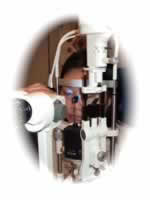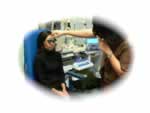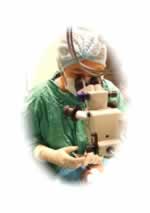

†

ACS Eye Specialist Centre
95G & 97G Jalan TKS 1,
Taman Kajang Sentral,
43000 Kajang,
Selangor, Malaysia.
Tel: 03-82116078
Waze or Google Map
About Ophthalmologists, Optometrists, Opticians and Orthoptists
Do you get confused between the above three titles? What are they, what is the difference? Read on to learn the significant difference between these designations, they certainly do not do the same things in eye care.
What is an Ophthalmologists?
An ophthalmologist is a medical doctor, specially trained in the medical and surgical care and treatment of the eyes. Becoming an ophthalmologist can take 12 or more years of advanced education and training. Ophthalmologists must complete 5 to 6 years of medical school, and 1 to 2 years of housemanship (hospital training). After that, the doctor undergoes 3 to 5 years of hospital residency to train in the medical specialty of ophthalmology.
It may seem surprising that a doctor would require so much training to treat such a small body part. But when we consider how important vision is to us all, and how complex and delicate the eye is, it isnít so surprising after all.
What Other Professionals Care For The Eyes?
People commonly confuse ophthalmologists with optometrists and opticians, but there are important differences among them. The main difference is that, unlike ophthalmologists, neither optometrists, orthoptists nor opticians are required to study medicine like doctors. Because they do not have a medical training or background, optometrists, orthoptists and opticians provide only limited forms of eye care.
Optometrists (Bachelor of Optometry) attend 3 to 4 years of tertiary education, where they are trained to examine the eyes to determine the presence of a limited number and type of vision problems and certain problems related to eye movement. Optometrists primarily prescribe eyeglasses and contact lenses. In USA, optometrists are given the title of "Doctor of Optometry" which leads to confusion when they practise in Malaysia because of the title "Doctor" in their certificate. A "Doctor of Optometry" should not be confused with the true medical doctors. Optometrists do not prescribe controlled medications nor perform eye surgery as they are not medically trained.
Orthoptics is a three-year full-time degree course. Orthoptists now spend the majority of their day assessing, diagnosing and managing patients with eye muscle disorders. Traditional orthoptic exercise programs are still employed when appropriate. Orthoptists work closely with ophthalmologists to ensure that patients with eye muscle disorders are exposed to a full range of treatment option Orthoptists serve patients of all ages, but because of the nature of many binocular disorders, the majority of patients are children.
Opticians are individuals who are trained to design, verify, and fit eyeglass lenses and frames, contact lenses, and other devices to correct eyesight. Opticians are not trained to diagnose or treat eye diseases, but when they do suspect a medical eye problem they should refer the patient to an ophthalmologist.
In contrast to optometrists, orthoptists and opticians, ophthalmologists are medical doctors who can examine the eyes in relation to the general health and condition of the whole body. The ophthalmologist is the only one of these three professionals who is qualified as a medical doctor to diagnose all eye diseases and to prescribe or perform medical and surgical treatment of the eye.
How Are Ophthalmologists, Optometrists, Opticians and Orthoptists Different?
Ophthalmologists (Eye Doctors) are different from optometrists and opticians in their training and in what they can diagnose and treat.
As a medical doctor, an ophthalmologist is licensed to practice medicine and surgery. He or she diagnoses and treats all eye diseases, performs eye surgery, and prescribes and fits glasses and contact lenses.
Ophthalmologists complete:
5 to 6 years of medical school;
1 to 2 years of housemanship;
between 5 - 8 years of hospital residency (hospital-based training) in the diagnosis and medical and surgical treatment of eye disorders.
After at least five years of medical school and eight additional years of medical education and training, an ophthalmologist must pass a rigorous examination given by the respective specialist board, which varies according to each countries medical practise laws.
An optometrist is a graduate in Bachelor of Optometry, licensed to practice optometry. Optometrists determine the need for glasses and contact lenses, prescribe optical correction, and screen for abnormalities of the eye. They attend 4 years of tertiary education.
An optician makes optical aids-fits, adjusts and dispenses glasses, contact lenses and other optical devices on written prescriptions of a licensed ophthalmologist or optometrist. Training for an optician varies from a preceptorship to two years of opticianry school.
The professional role of the orthoptist include examining patients with eye problems especially those related to ocular motility, binocular vision, amblyopia (lazy eye) or strabismus (squint). Orthoptists diagnose these problems and determine appropriate management. Some perform vision screening of children in schools and community health centres.
*Orthopedic Surgeons are medical doctors who specialise in treating joints and bones, they do not specialise in treating the eye.
†